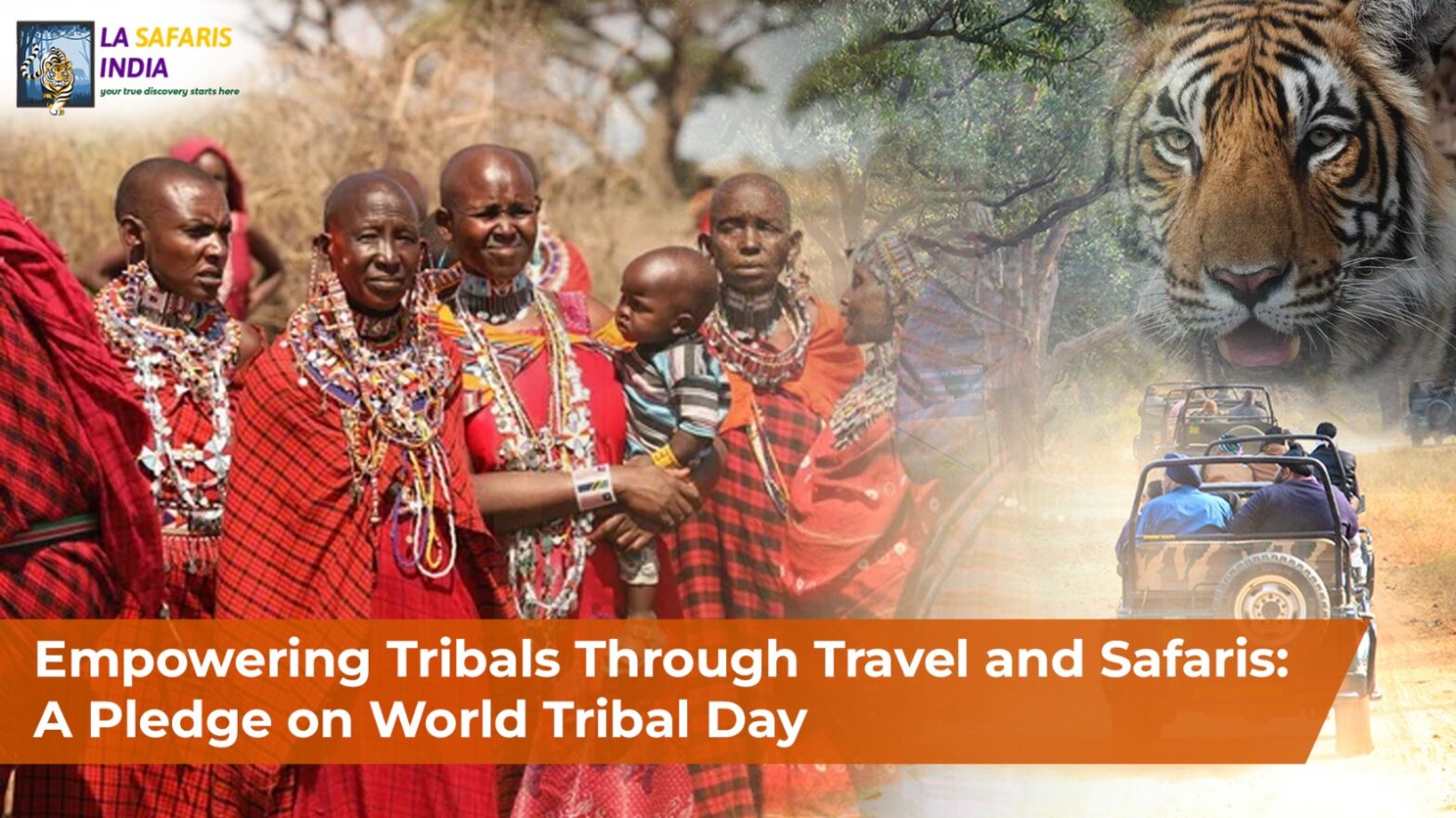Tribes are the most civilized people who understand how to preserve and utilize resources rather than deplete them. However, somehow, they fail to preserve themselves and their rights and cope with the outside world.
To support and defend the rights of Indigenous populations worldwide, World Tribal Day, also known as the International Day of the World’s Indigenous Peoples, is observed every year on August 9. This day is intended to honour these people’s diverse cultures, languages, customs, and social contributions. The opportunity presented by this event allows for greater public awareness of the problems and challenges indigenous populations face, including those related to land rights, cultural preservation, prejudice, marginalization, and social and economic inequities.
However wildlife tourism in India offers a distinctive way for contemporary people to encounter the environments where indigenous tribes live. By providing an up-close look at the daily routines, traditions, and customs of these tribes, they foster cultural exchange and understanding.
Significance of World Tribal Day
Indigenous communities have frequently endured historical injustices, prejudice, and culturally degrading practices. World Tribal Day raises awareness of them and their rights. It’s an opportunity to support their efforts to preserve their cultures, languages, and traditions while recognizing their rights and advancing their welfare. While gaining profound insights into other people’s ways of life, wildlife tour operators can contribute to preserving distinctive cultures and environments. Their participation in international efforts to combat climate change, promote peace, and collaborate digitally is essential to effectively implementing their indigenous rights.
Background of World Tribal Day.
The International Day of the World’s Indigenous Peoples must be observed every year on August 9, according to a resolution adopted by the UN General Assembly in December 1994. The day was selected to honour the first gathering of the UN Sub-Commission on the Promotion and Protection of Human Rights Working Group on Indigenous Populations, which inspired the date and took place in Geneva in 1982.
Getting over Obstacles and Moving Forward.
Participating in World Tribal Day involves much more than just attending events and posting content on social media. We must work together with Governments, non-governmental organizations, and the international community to address tribal welfare. Working together can lead to positive change. We can actively promote the fair trade of indigenous goods, contribute to the cost of educational programs, or take part in initiatives promoting self-sufficiency. Indigenous peoples support a wide range of environmentally friendly climate change solutions. Reducing global warming requires using traditional techniques like rotational agriculture, which improves the general health of the forest and jungle ecosystems. Additionally, tourists’ and indigenous peoples’ welfare can be prioritized in sustainable tourism models. To ensure that profits are invested in regional development programs that benefit tribal populations, this could entail establishing wildlife tourism in India businesses with a community focus.
By actively promoting their empowerment and taking note of their contributions and difficulties, we can work toward a future where all cultures are respected, and all voices are heard.


